How Muscle Cars From Plymouth Captured the American Market With Their Power And Style
Plymouth, a revered name in muscle car history, crafted legendary models like the Road Runner, 'Cuda, and GTX from 1963 to 1974, symbolizing freedom and the American spirit. Featured in iconic films like Christine and Phantasm, these powerful machines left an enduring cultural legacy among automotive fans.
Published July 31, 2024

In the 1960s and 70s, Plymouth cemented itself as a leader in the muscle car segment with iconic models like the Road Runner, 'Cuda, and GTX. With their commanding V8 engines, aggressive styling, and advanced engineering, these Plymouth icons left an indelible mark on America's cultural landscape.
Beyond just high-performance machines, they came to symbolize freedom, individuality, and the essence of the American Dream. These roaring, high-performance machines have left an indelible mark on the nation's pop culture landscape. Among the iconic muscle car manufacturers, Plymouth, in particular, stands out as a formidable contender. In this comprehensive exploration, we delve into the enduring legacy of Plymouth muscle cars and their profound influence on American pop culture.
The Golden Era of Plymouth Muscle Cars: Powerhouses of the 60s and 70s
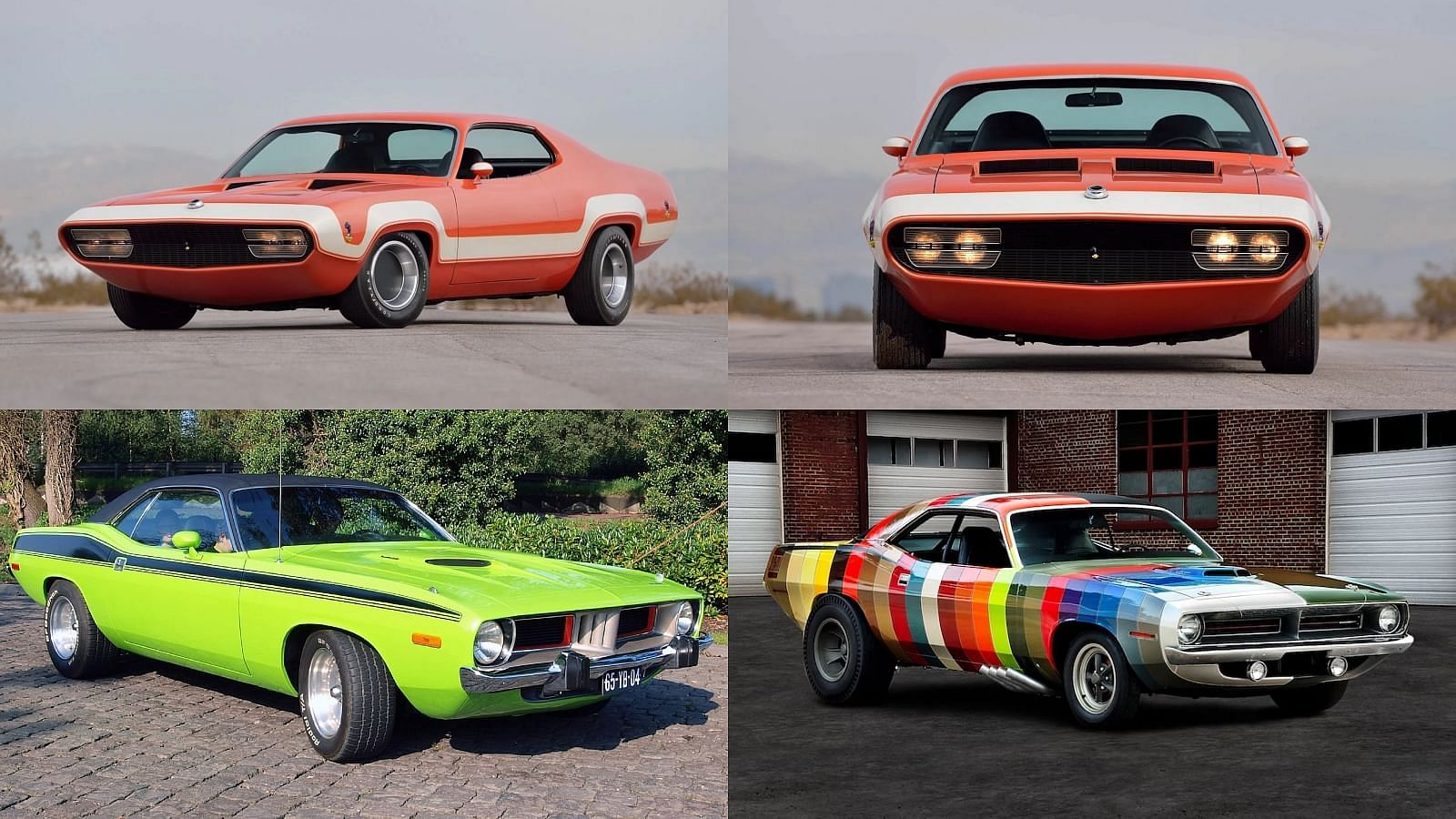
Between 1963 and 1974, Plymouth produced a diverse range of muscular pony cars and intermediates that set the streets ablaze. The likes of the Road Runner, 'Cuda, Duster, Barracuda, and GTX are etched in the annals of automotive history. What set Plymouth apart were its powerful V8 engines, including the revered Hemi and Wedge power plants, ranging from 340 to a staggering 426 cubic inches. These engines unleashed blistering acceleration and unmatched performance, often outshining even their Dodge and Chrysler counterparts.
Form Meets Function: The Aesthetics and Performance of Plymouth Muscle Cars
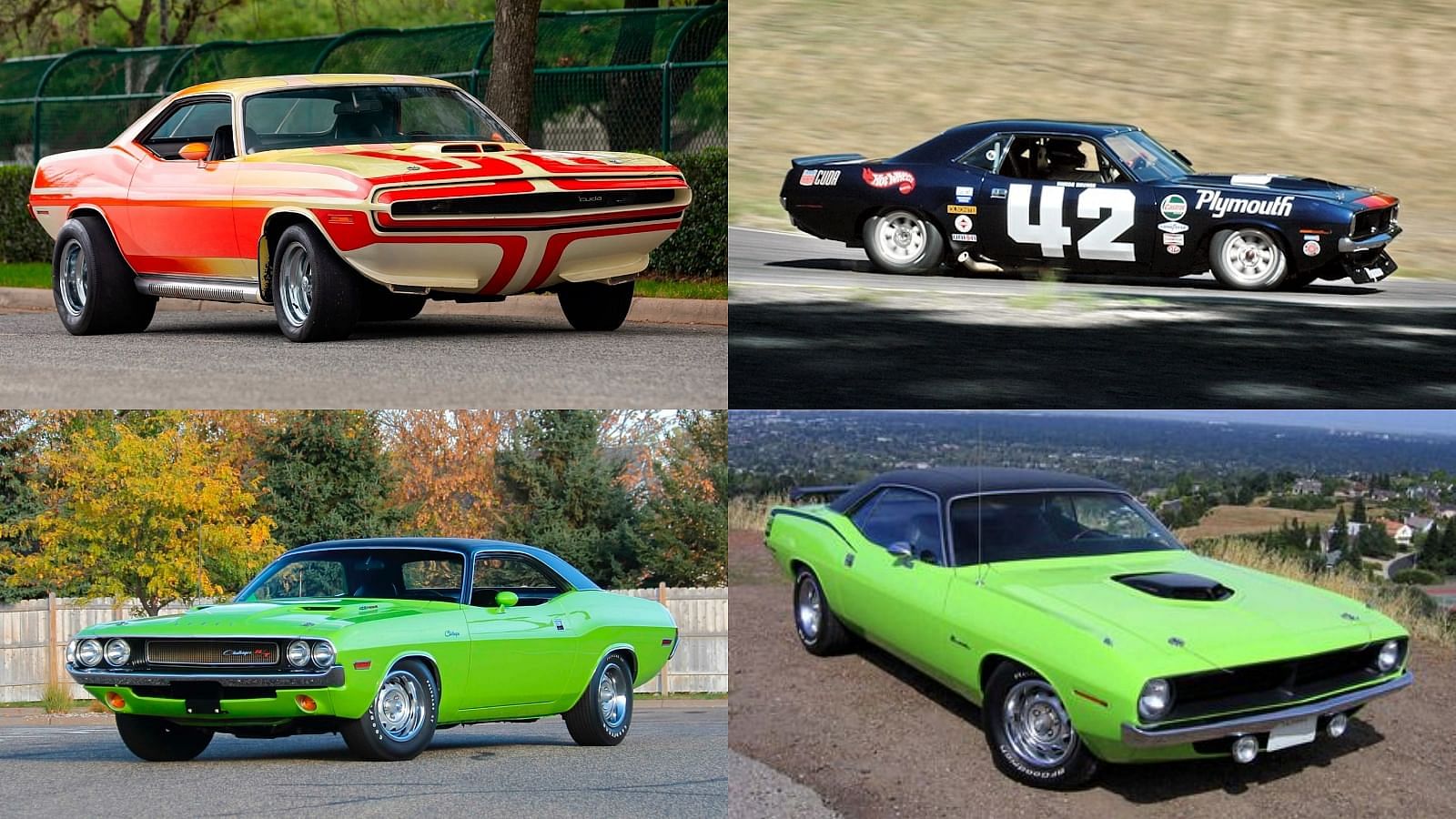
Plymouth muscle cars were not just about raw power; they were a fusion of form and function. The muscular exteriors featured pronounced fenders, aggressive hood scoops, and captivating color options like Hemi Orange, Lemon Twist, and Vitamin C. These design elements not only appealed to gearheads but also became iconic symbols of the muscle car era.Furthermore, Plymouth invested heavily in advanced suspension systems and aerodynamic features, elevating their handling and high-speed stability. This commitment to performance made Plymouth a leader in the competitive muscle car segment.
Plymouth Muscle Cars on the Silver Screen
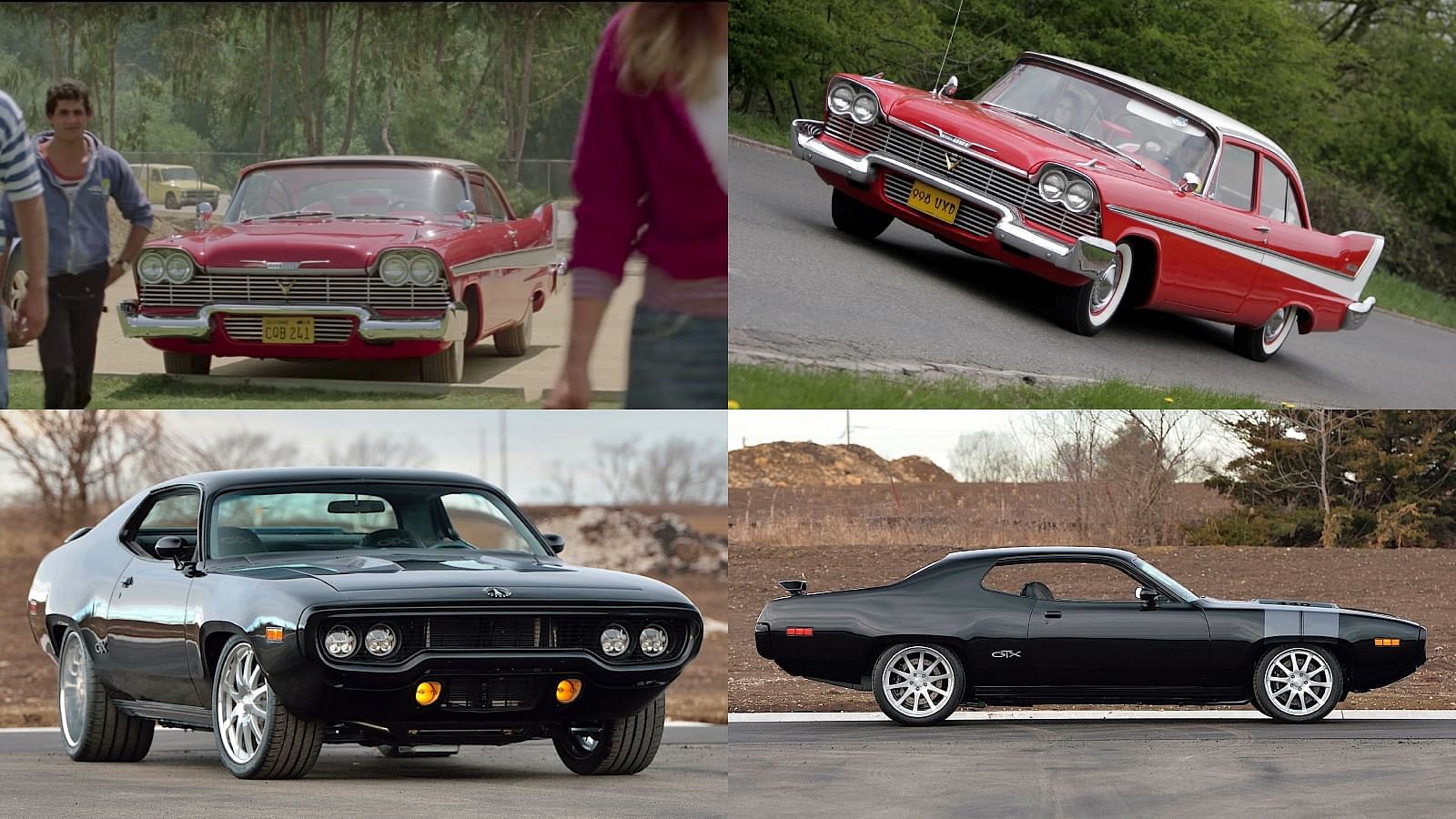
Beyond the confines of racetracks and highways, Plymouth muscle cars transitioned seamlessly into the world of cinema. They became stars in their own right, leaving an indelible mark on American pop culture. Beyond just the streets and drag strips, Plymouth muscle cars frequented the silver screen and television, attaining pop culture icon status thanks to memorable appearances across various movies and shows.
Even in recent years, Plymouth muscle cars continue to wield influence in the film industry. For instance, the 1970 Plymouth GTX made a notable appearance in "The Fate of the Furious," underscoring the enduring popularity and significance of these vehicles. Their rich history and distinctive characteristics ensure that they remain a vibrant part of American cinema and pop culture.
Plymouth's influence in film and pop culture extends to its diverse range of muscle car models, including the Valiant, Barracuda, and Duster, manufactured between 1963 and 1976. Filmmakers have leveraged this variety to select the ideal Plymouth muscle car to complement their artistic vision, enriching the tapestry of American cinema.
The menacing 1958 Plymouth Fury in the adaptation of Stephen King's horror classic "Christine" terrified audiences as a supernatural entity. The 1970 Hemi 'Cuda in "Phantasm" gained recognition among horror fans as an iconic muscle car in the film. Road Runners and 'Cudas inject excitement through stunts and chase sequences in comedies like "Tommy Boy" and "Joe Dirt."
Plymouth muscle cars have seamlessly integrated themselves into the world of cinema, becoming veritable stars in their own right. Classics like "The Blues Brothers," "Christine," and "Fast & Furious 6" have showcased these formidable machines, captivating audiences with their distinctive attributes. These cars aren't mere props; they're integral to the storytelling, breathing life into these cinematic works.
Iconic Horror: Christine’s 1958 Plymouth Fury
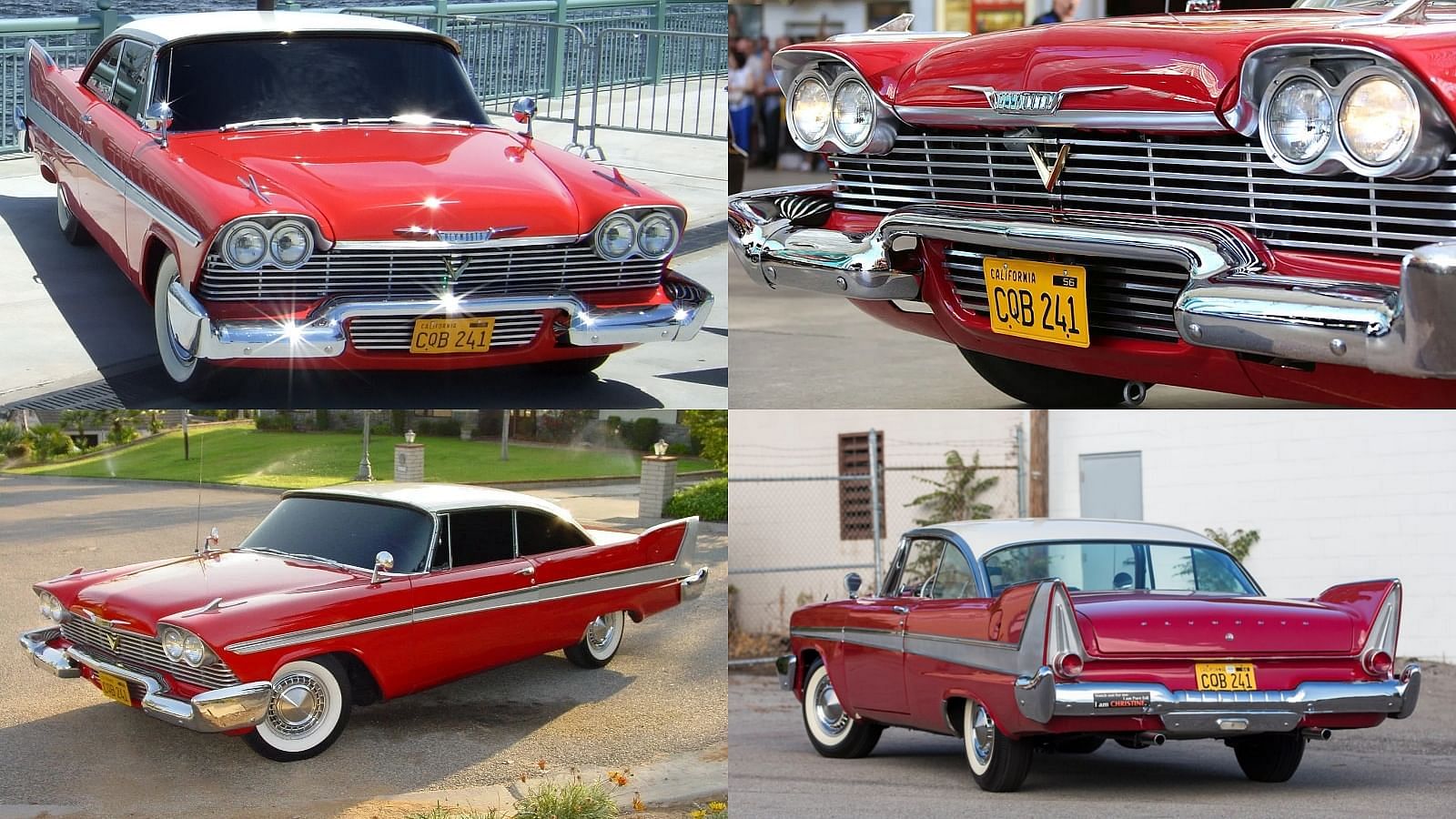
Perhaps one of the most iconic Plymouth muscle cars to grace the silver screen is the 1958 Plymouth Fury, immortalized in the adaptation of Stephen King's "Christine." Plymouth's influence extended to the horror genre with the menacing 1958 Plymouth Fury in the adaptation of Stephen King's classic "Christine." This supernatural entity struck terror into the hearts of audiences, cementing its place as a cult classic and a symbol of Plymouth's impact on cinema.
Under the masterful direction of John Carpenter, this malevolent car became a quintessential representation of Plymouth in the film industry. Its cult classic status remains unshaken, etching its presence into the minds of audiences. The 1958 Plymouth Fury featured in the film is an actual survivor and has become a valuable piece of movie history. In 2022, the car was held at an auction, with an estimated value between $400,000 and $500,000
Legendary Encounters: Phantasm’s 1971 Plymouth Cuda
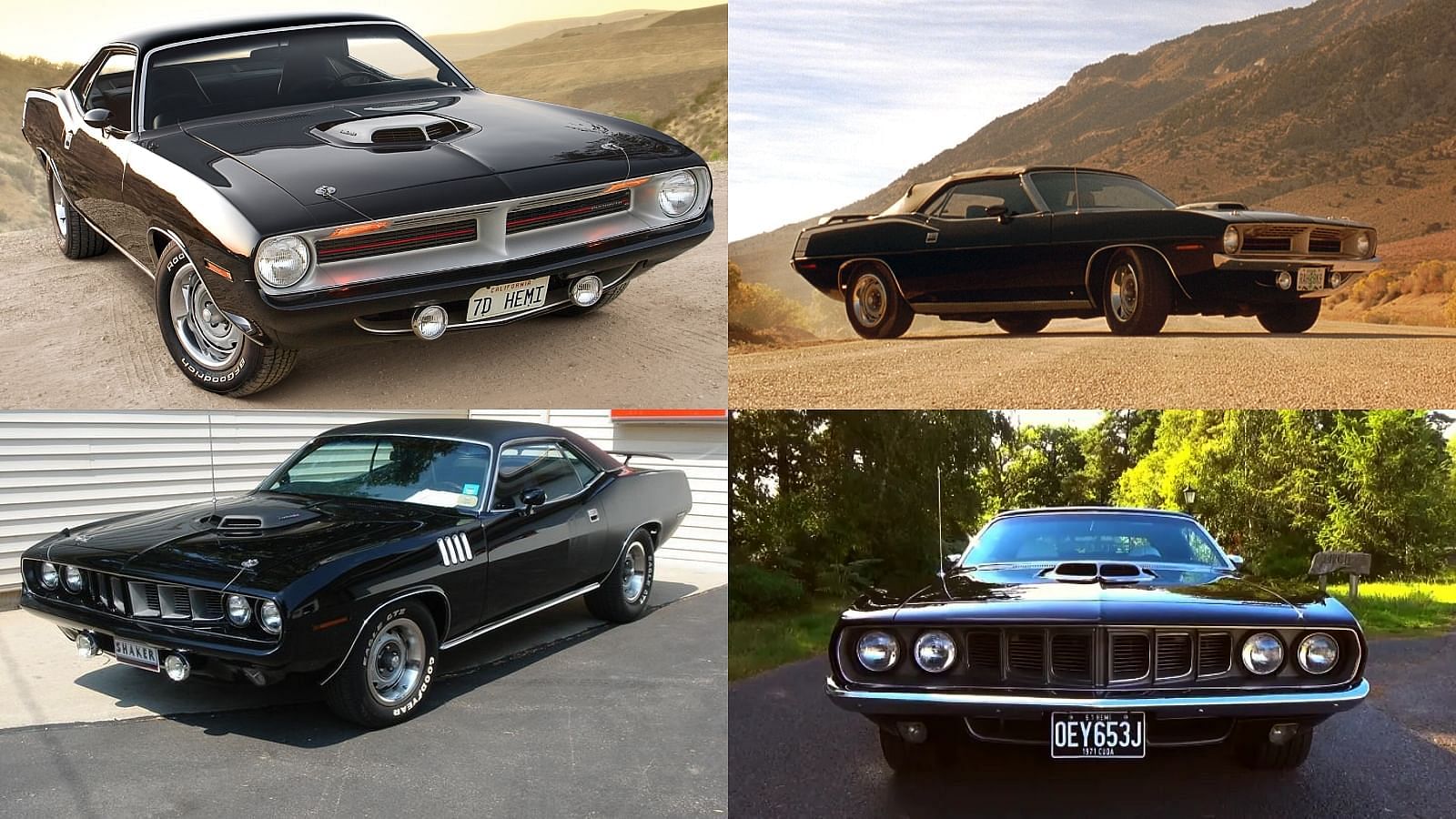
Another unforgettable entry in the Plymouth lineup is the 1971 Plymouth Cuda, featured prominently in "Phantasm." This car, like many Plymouth muscle cars, becomes inseparable from its film, enhancing the overall appeal and popularity of the cinematic work. Its distinctive attributes contribute significantly to its iconic status. The 1971 Plymouth 'Cuda featured in the film was a triple black 440-6 barrel model, which added to its allure and appeal. The car played a prominent role in the movie, capturing the attention of viewers and becoming a beloved part of the film's legacy
Modern Resonance: Plymouth Muscle Cars in "The Fate of the Furious"
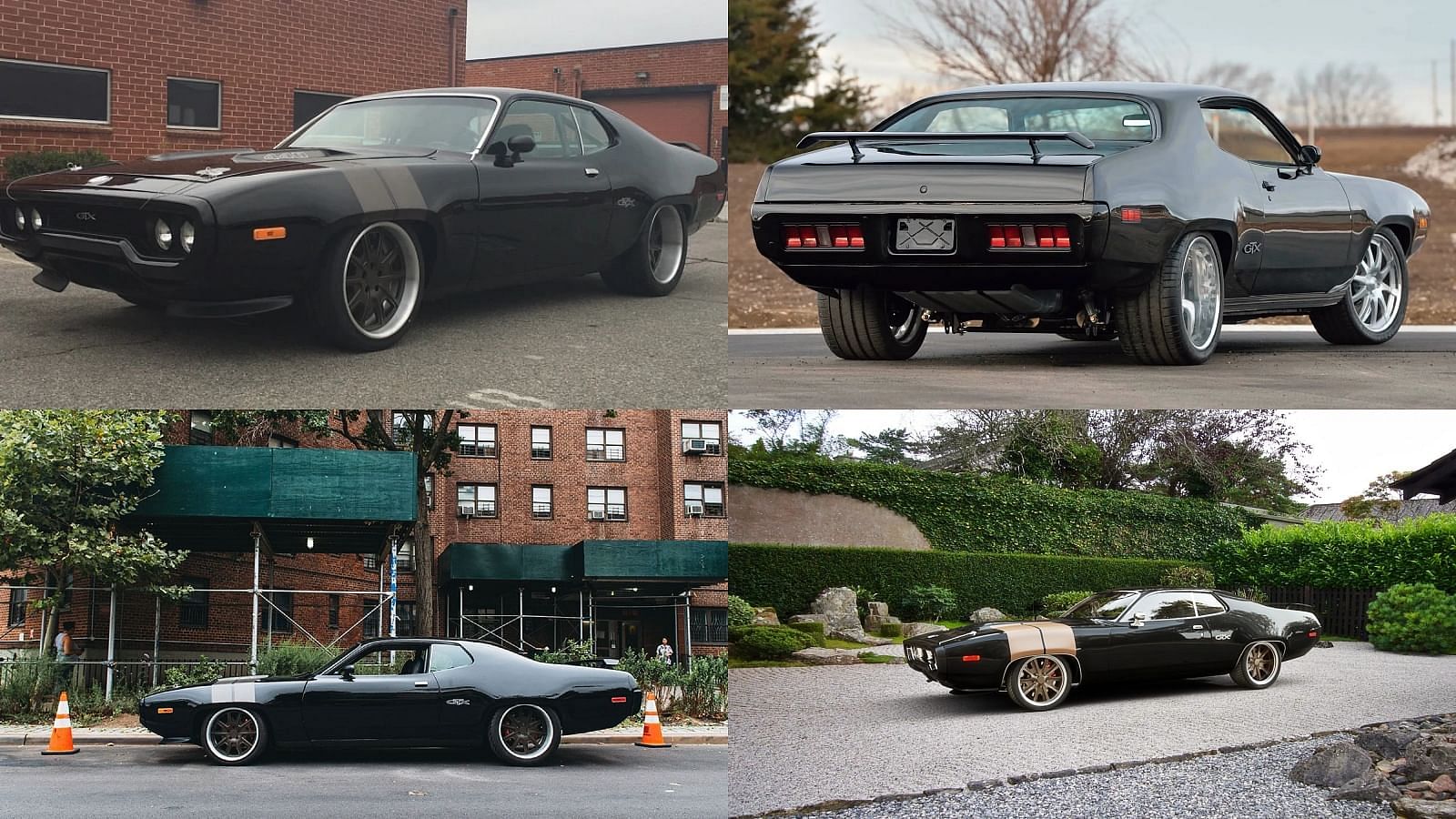
In the 2017 blockbuster "The Fate of the Furious," the 1970 Plymouth GTX stole the show with its commanding presence and speed. This film underscored the enduring popularity and significance of Plymouth muscle cars, captivating a new generation of enthusiasts and moviegoers.
The Rarity: The Collectible Status of the 1970 Plymouth Hemi 'Cuda
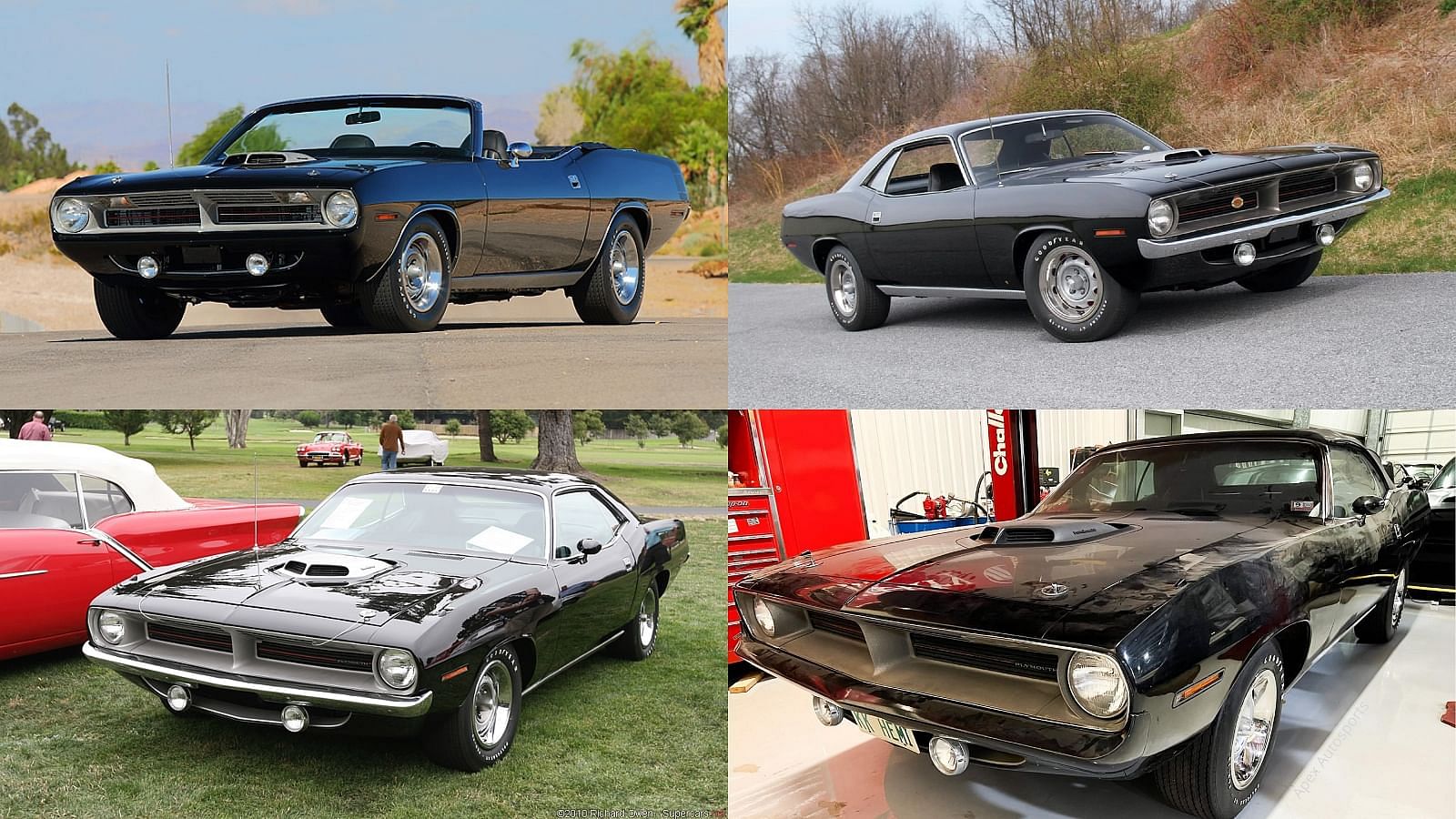
For collectors and enthusiasts, the 1970 Plymouth Hemi 'Cuda remains the holy grail of muscle cars. These limited-production models are highly sought after, fetching premium valuations at auction houses. Their exclusivity and desirability have elevated Plymouth muscle cars to the status of cultural artifacts. In 1970, only 666 Hemi 'Cudas were produced for the U.S. market, with a mere 14 of them being convertibles.
This rarity contributes to the car's desirability and high market value. A 1970 Hemi 'Cuda can easily fetch over $150,000 USD, with some exceptional examples commanding prices well into the millions. The first-ever 1970 Hemi 'Cuda, for instance, was listed for sale at $2.2 million.
Plymouth Muscle Cars on Television
Television also played a pivotal role in solidifying Plymouth muscle cars as cultural touchstones. Shows like "The Dukes of Hazzard" and “Magnum, P.I.” prominently featured these vehicles, further embedding them in the American psyche. On television, the bright yellow 1971 Plymouth Road Runner driven by Daisy Duke in "The Dukes of Hazzard" left an indelible memory thanks to the show's popularity among young audiences. Detectives got behind the wheel of Plymouth sedans and coupes in shows like "The Brady Bunch" and "Nash Bridges".
Plymouth muscle cars aren't just vehicles; they're cultural touchstones that evoke nostalgia and admiration being used in series like “Stranger Things”, “WestWorld”, “Umbrella Academy” and “The Marvelous Mrs. Maisel”. They symbolize dreams and aspirations, representing the pursuit of success and a sense of achievement. For many, these cars embody the American Dream, an emblem of power, freedom, and individuality.
The Impact of Plymouth Muscle Cars on Storytelling: "The Dukes of Hazzard"
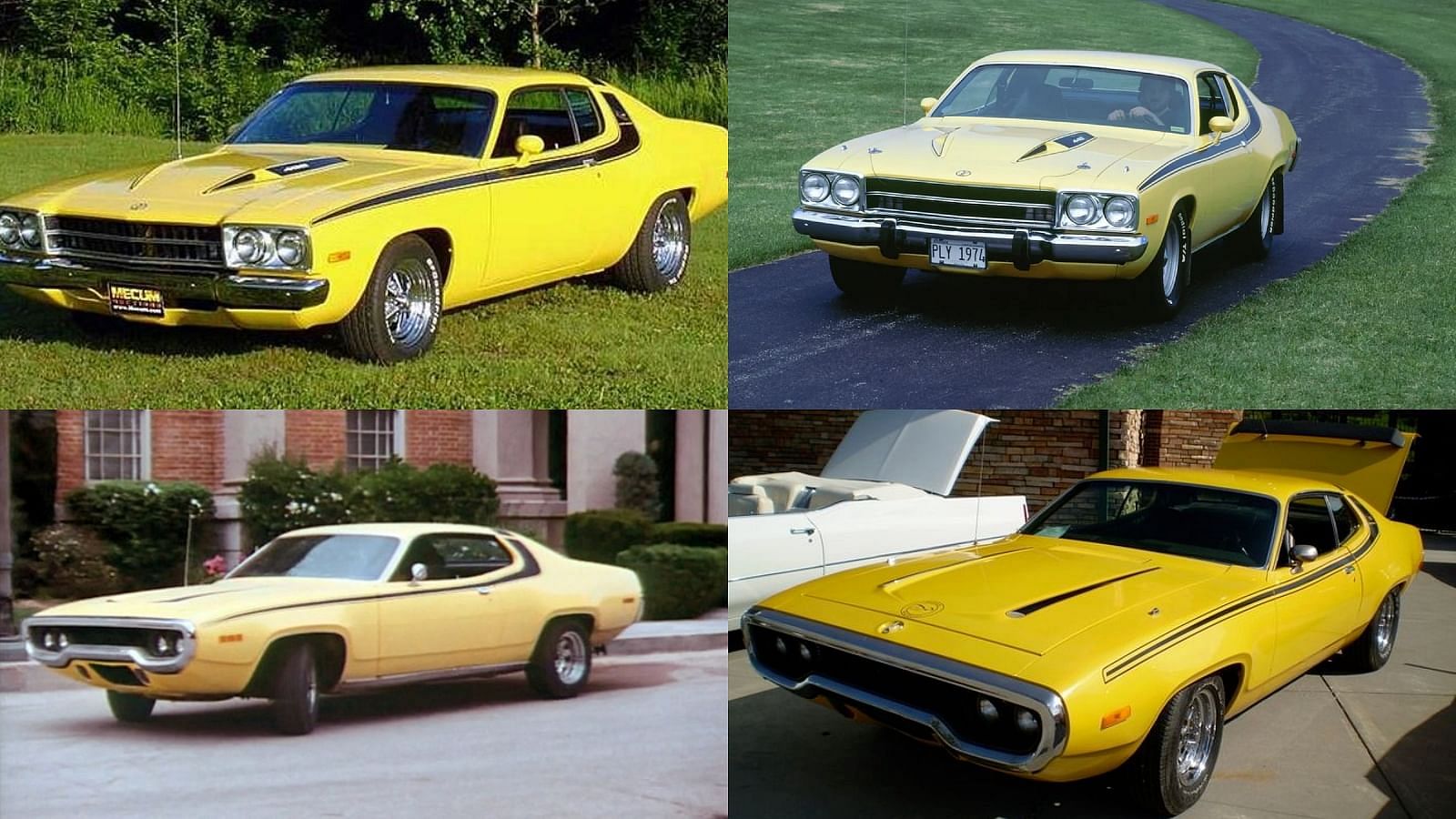
In "The Dukes of Hazzard," the 1971 Plymouth Road Runner, with its eye-catching yellow hue and black stripe, shared the spotlight with the iconic "General Lee." While not the primary focus, its high-speed chases and stunts added excitement and style to the show, making it a symbol of adventure and thrill. During the series' run from 1979 to 1985, this beloved action comedy showcased an array of iconic vehicles, including the famed "General Lee," a 1969 Dodge Charger.
Among these automotive stars was Daisy Duke's 1971 Plymouth Road Runner, painted in an attention-grabbing yellow hue with a black stripe. The Road Runner's presence in the show, distinguished by its vibrant color and distinctive design, solidified its status as a memorable and eye-catching element, particularly for younger viewers.
Timeless Charm: Plymouth Muscle Cars in 'Magnum, P.I."
"Magnum, P.I." introduced viewers to the charismatic Thomas Magnum, who cruised through Hawaii in a red 1979 Plymouth TC3. This distinctive car became an integral part of Magnum's persona, symbolizing adventure and style. This 1979 Plymouth Champ, as seen in the series, remained remarkably true to its original form, with a staggering 99% of its components remaining unchanged, right down to the tires.
However, it's worth noting that a couple of features, like wheel reflectors and two pads, were notably absent. While this vintage automobile may have turned heads on screen, it garnered mixed reviews in real life, often being critiqued for its underwhelming performance and somewhat rugged ride.
Throughout the show's run, this red 1979 Plymouth TC3 had to share the spotlight with the iconic red Ferrari 308 GTB, the preferred choice of Magnum's friend, Robin Masters. Despite the contrasting appeal of the Ferrari, the Plymouth TC3 held its own as an integral part of the series, embodying the adventurous spirit of Magnum and the era it represented.
Plymouth Muscle Cars: Symbols of Freedom and Aspiration
Plymouth was a brand of automobiles produced by Chrysler Corporation and its successor, DaimlerChrysler. The brand was launched in 1928 to compete in the "low-priced" market segment, which was dominated by Chevrolet and Ford at the time. Plymouth became a high-volume seller for the automaker until the late 1990s, primarily marketing its cars in the United States.
The brand was eventually withdrawn from the marketplace in 2001, with the remaining Plymouth models either discontinued or rebranded as Chrysler or Dodge vehicles. Plymouth muscle cars transcend mere vehicles; they symbolize freedom, adventure, and the American spirit. They represent the pursuit of success and individuality, embodying the American Dream. These cars have the unique ability to evoke nostalgia and admiration across generations.
A Lasting Legacy: The Enduring Appeal of Plymouth Muscle Cars
Even today, Plymouth muscle cars continue to captivate collectors, enthusiasts, and casual admirers. Resto-mod creations pay homage to these legends with design callbacks and high-tech upgrades. The appeal of Plymouth muscle cars traverses generations, exhibited by the continued enthusiasm among Millennials and Gen Zs.
In conclusion, Plymouth muscle cars are not just machines; they are enduring icons of American automotive history and pop culture. From the silver screen to television sets, these vehicles have woven themselves into the fabric of American storytelling. They are symbols of power, style, and freedom, resonating with enthusiasts and capturing the imagination of audiences young and old. As they continue to inspire and captivate, Plymouth muscle cars stand as enduring legends, firmly etched in our collective memory.
Write a comment
Comments
No Comments Yet








